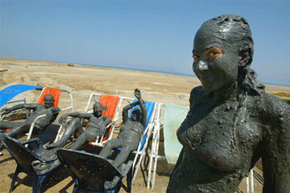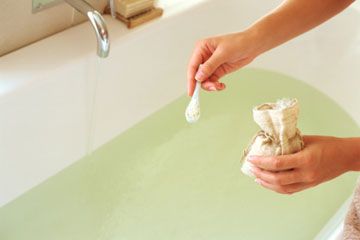People have been taking mud baths for centuries, not just for stress reduction but also as a form of skin therapy, and some modern researchers have begun to explore the "why" behind the benefits.
Results haven't been definitive, but there is some clinical evidence that mud baths can improve the symptoms of certain skin conditions, and it seems to be related to one particularly notable property of spa mud: It can reduce inflammation.
Inflammation is a common component of many skin problems, including psoriasis, seborrheic dermatitis, rosacea, eczema and acne. It can lead to plain-old dry skin, too. And while mud-bath ingredients vary widely by geographic location (and between local spas), they do have a lot in common, and the anti-inflammatory effects might be related to these common ingredients.
A typical therapeutic mud bath contains some combination of mineral water, clay, peat moss and volcanic ash. The anti-inflammatory property appears to result at least partly from the high mineral content of these components.
Minerals like sulfur, magnesium and zinc have been used in dermatology and naturopathy for years. The human body requires an adequate supply of zinc to heal inflammation. Magnesium salts are a primary component in Dead Sea water, which is used to alleviate inflammatory disorders of skin and joints. You can find sulfur compounds on the ingredient lists of many anti-inflammatory lotions and creams.
Of course, inflammation isn't the only problem drawing people to the mud, and those minerals with anti-inflammatory properties aren't the only ones in a mud bath. There's plenty of other good stuff to be found in high-quality spa mud.


